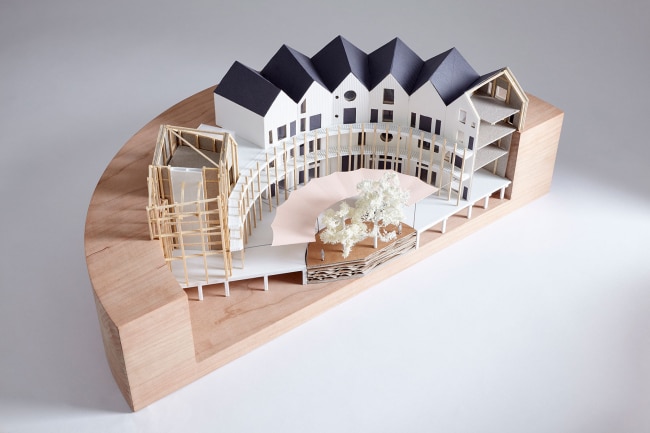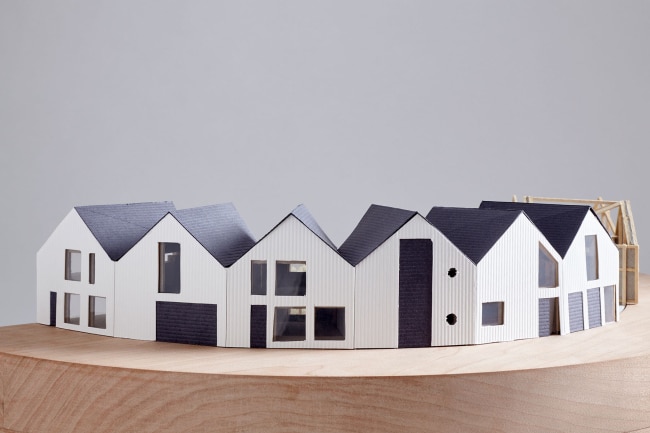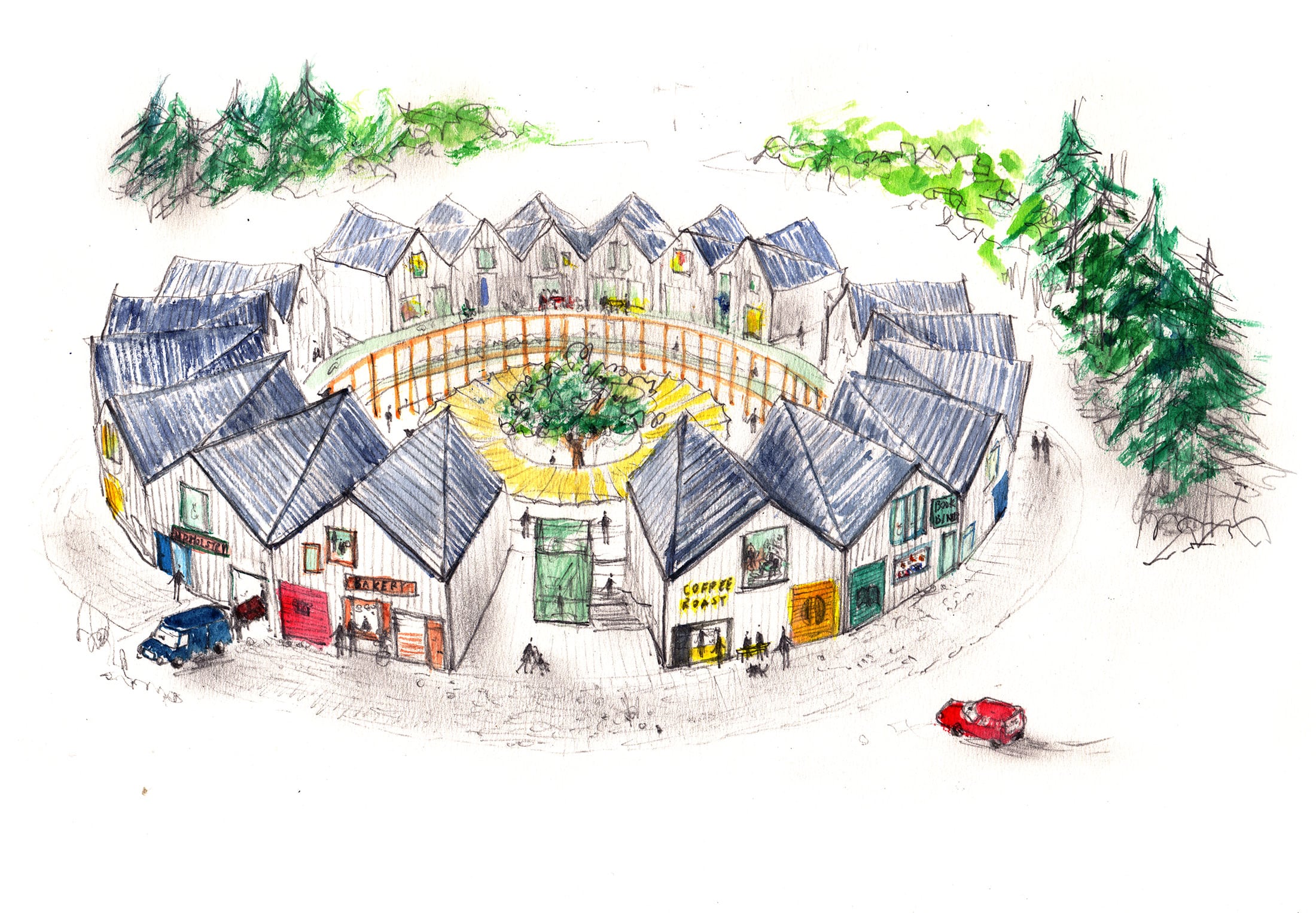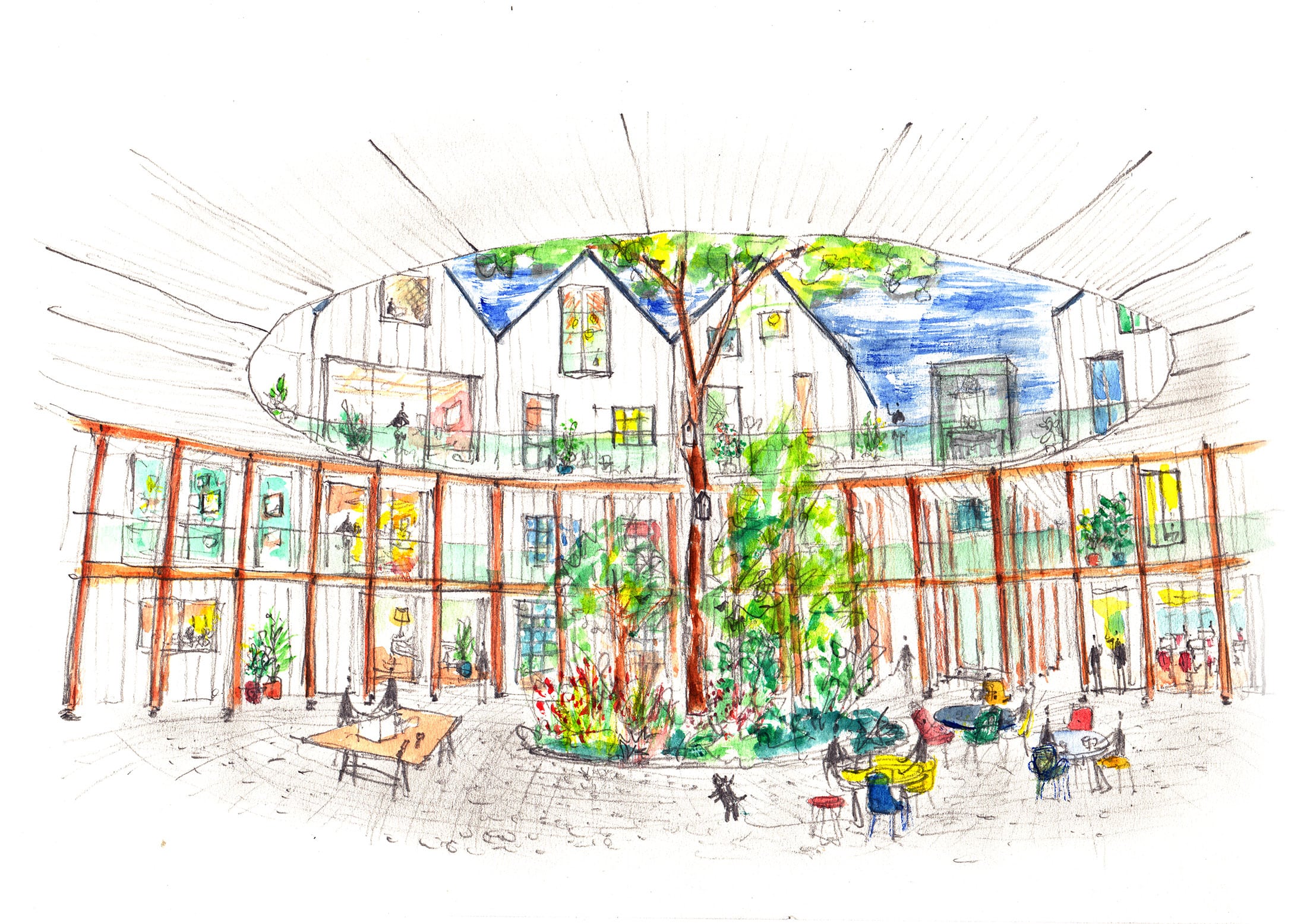Outpost win Gasholder Bases, RIBA Competition
We are thrilled to announce that Outpost has won the RIBA Gasholder Bases competition with our community-focused design for an affordable residential and light industrial mixed-use scheme.
The competition challenged entrants to envision innovative and inspiring future uses for the National Grid gasholder bases— the sub-surface voids left behind after the demolition of old gasholders. We saw this as a unique opportunity to address two key national challenges: the well-publicised shortage of affordable housing and the equally pressing, though less discussed, lack of affordable flexible workshops, studios, and workspaces in our urban areas.
Our design aims to provide a solution that integrates both residential living and creative workspaces, fostering vibrant communities where people can live, work, and grow.



Overall Statement
The UK faces a well-known shortage of affordable housing, but equally important, there’s a diminishing availability of flexible workspaces for start-ups, artists, and small businesses. To make a real difference for future generations, we need a commitment to providing both affordable housing and accessible workspaces. Gasholders present a unique opportunity to address both needs, combining affordable housing with business workspaces to foster thriving communities and support entrepreneurs.
Design Concept: The Module
Our design draws inspiration from the simple, pure form of the gasholder—specifically, the circle. We developed a repeatable module, a simple structure that becomes more complex when multiplied. Each gasholder is subdivided into 18 modules across five levels, including a mezzanine and sub-basement. These modular units are arranged around a communal courtyard with an emphasis on flexibility and accessibility.
The Module – The Detail
We worked with PYC Group to design a low-energy, timber frame construction, using glulam beams and SIPs for efficiency and sustainability. Each module uses about 15 trees for construction, and in return, we will plant 30 trees per module as part of our environmental strategy. The modules are designed to be adaptable, allowing for different layouts and uses as needs change over time, with low operating costs and flexibility for both live and work purposes.
Services & Sustainability
Our design incorporates a flexible service strategy, with all plant housed in the basement and a shared riser between modules for easy service distribution. The large courtyard and roof spaces offer opportunities for rainwater harvesting, greywater systems, and fostering biodiversity through landscaping and beehives. The modular design allows for future upgrades and adjustments to accommodate changing technologies and business needs.
Functionality & Commercial Viability
The modules are offered as open-plan shells, allowing occupants to adapt the space to their needs over time. This flexibility makes the units attractive to young first-time buyers, creative industries, and entrepreneurs. With favourable business rates and financing options, the project can also serve as an incubator for new businesses.
Cost & Maintenance
The use of timber frame construction and SIPs keeps costs competitive, with an estimated £500-600/m² for the timber structure. The open-plan shell approach reduces costs and waste, while giving occupants the freedom to build out their space as their budget allows. The design focuses on low maintenance and operational costs, with community engagement promoting a sense of ownership and care.
The Community
Inspired by the circular design of Hakka Tulou villages, our gasholder redevelopment aims to foster a vibrant, creative community. Residents and business owners alike can share a dynamic space, generating collaborations across industries—from architecture and furniture making to brewing, coffee roasting, and more. This interconnected environment will encourage innovation and a strong sense of community.
This vision integrates affordable housing, workspaces, and community life, creating a sustainable and vibrant environment for future generations.

Project information
Project Type
Competition
